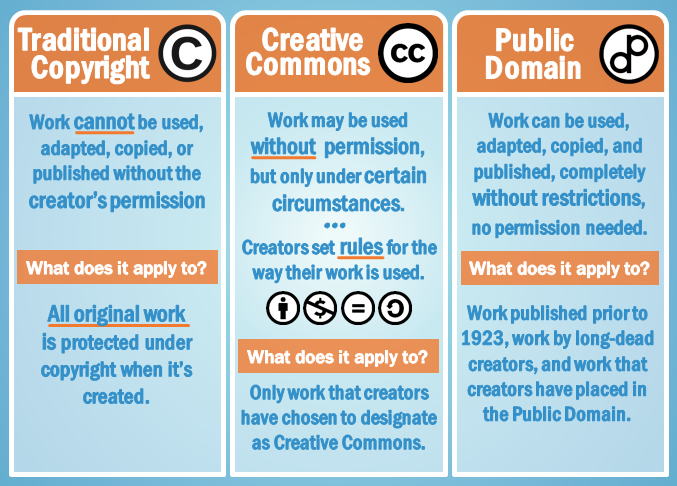Blog Basics
Copyright and Fair Use
Understanding copyright
Copyright is the legal concept that works—art, writing, images, music, and more—belong to the people who create them. According to copyright law, any original content you create and record in a lasting form is your own intellectual property. This means other people can't legally copy your work and pretend it's their own. They can't make money from the things you create either.
To use, copy, or change a copyrighted work, you need permission from the person who holds the copyright. This permission is called a license. Even though everyone has the right to require that others respect their copyright and ask permission to use their work, some people and organizations choose to license their content more freely. They do this by giving their work a Creative Commons license or by placing their work in the Public Domain.
Review the infographic to get an overview of the differences between traditional copyright, Creative Commons, and Public Domain.
 Copyright, Creative Commons, and Public Domain
Copyright, Creative Commons, and Public Domain






